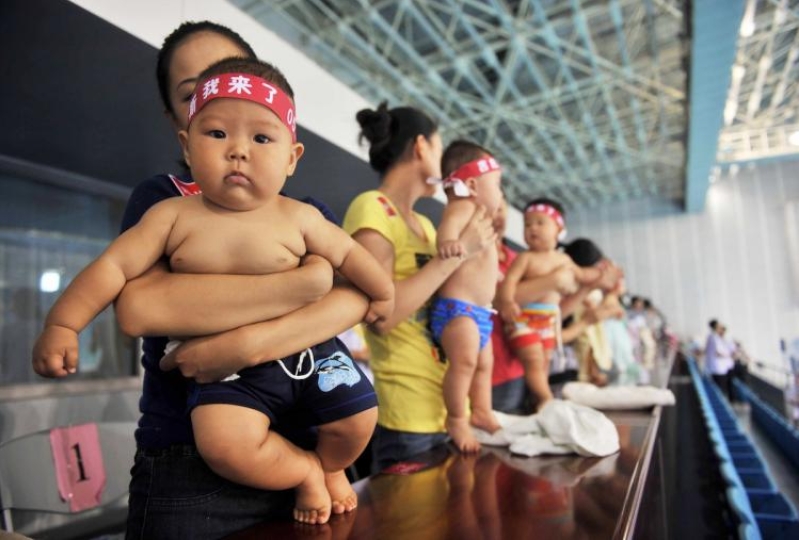
Chinese legislators passed a historic decision on Sunday, allowing all couples to have two children in the future, Xinhua News Agency reported. The new birth policy replaces the country's controversial 37-year-old one-child policy, and will go into effect Jan. 1, 2016. Some claim the one-child policy was ineffective and unnecessary, given the country's aging residents.
"China has already begun to feel an unfolding crisis in terms of its population change," said Wang Feng, a professor at Fudan University and a leading demographic expert on China.
"History will look back to see the one-child policy as one of the most glaring policy mistakes that China has made in its modern history."
"The state advocates that one couple shall be allowed to have two children," according to the newly revised Law on Population and Family Planning, passed at the bi-monthly session of the National People's Congress Standing Committee.
When news of the planned change to the 1978 law surfaced in October, the ruling Communist Party issued the following statement: "To promote a balanced growth of population, China will continue to uphold the basic national policy of population control and improve its strategy on population development. China will fully implement the policy of 'one couple, two children' in a proactive response to the issue of an aging population."
Lu Jiehua, a sociologist at Peking University, estimated the policy will affect 100 million couples. China, now a nation of more than 1.3 billion people, reports CNN.
To ensure population control in the past, Chinese officials resorted to abortions, heavy fines and forced sterilization. China's government officials said the country could become home to the most elderly population on the planet in just 15 years, with more than 400 million people over the age of 60.
Human rights group Amnesty International issued a statement warning the change in policy was "not enough."
"Couples that have two children could still be subjected to coercive and intrusive forms of contraception, and even forced abortions -- which amount to torture," China researcher William Nee said.
"The state has no business regulating how many children people have," Nee said.
Chinese regulators began relaxing the controversial child policy in January 2014, allowing couples to have a second baby if the mother or father was an only child, reports CNN. Nationwide, nearly 1 million couples eligible under the new rules had applied to have a second child, state media reported at the time.







